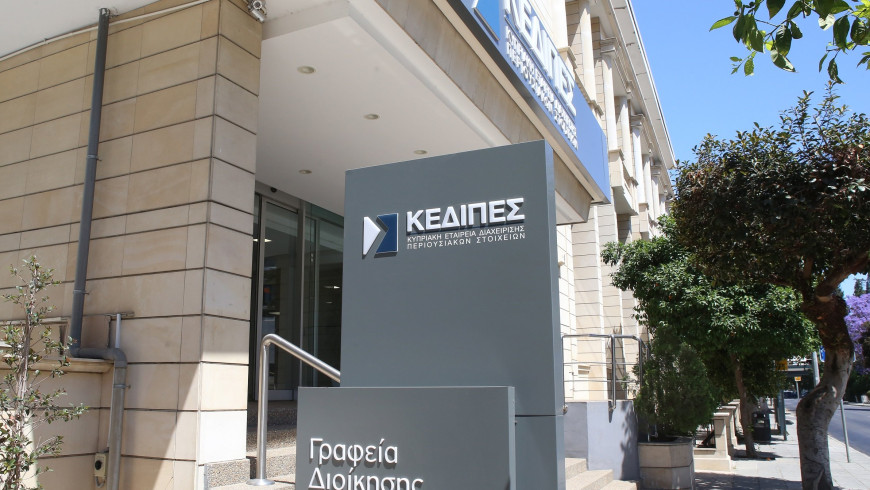
Banks are getting ready for one of the toughest periods in the past few years since demand has stuck at the same time that the deteriorating economy increases problems in the payment of loans. The negative factors include the high deposit rates, which keep lending rates sharply up affecting growth. The state’s ability to offset the recession with fiscal measures is restricted, while there is a risk of things becoming worse after the latest developments in Greece.
High ranking bank officials told StockWatch that despite the efforts to reheat demand for loans, the households and the businesses remain hesitant. “If demand increases, credit growth will probably be of one digit”, Bank of Cyprus Chief Director of Banking Activities, Vasos Siarlis said.
Another suspending factor in the acceleration of credit growth is the liquidity pressures.
“In difficult periods, the bank must maintain a satisfactory liquidity so as to avoid any unexpected or undesirable situations”, Marfin Deputy CEO, Panayiotis Kounnis told StockWatch.
“Given the stillness in the flow of new deposits, we want to keep credit growth to levels below 5%”, he added.
“Demand in loans concerns those that have to do with health or educational reasons only”, Strovolos Coop Manager, Demetrakis Stavrou noted.
Although credit growth hit a record low, Mr. Stavrou said that there are still hopes since “many young couples are interested in housing loans, given that they can afford the loan terms”, he said.
Payment problems
Apart from the lower increase in their revenues, the domestic banks must deal with the increasing bad debts. The NPLs are expected to show higher increase due to the extended crisis.
Mr. Siarlis believes that NPLs in 2010 will reach 7%, Mr. Kounnis supports that they will exceed 6%, while Mr. Stavrou that will near 7%.
“Things are difficult. There are people who lost their jobs and companies that make lower sales. People need help”, Mr. Kounnis added.
Expensive money
The businesses and the households in the euro area took a deep breath with the drop in the cost of borrowing. In Cyprus, however, the interest rates remain high, despite efforts to strengthen bank liquidity.
“If the competent authorities manage to achieve a convergence of the deposit rates with those of the euro area, there are hopes that this distortion in the Cyprus market will be corrected and the results from the banking activities will be satisfactory. If not, the days to come will be more difficult”, Mr. Siarlis said.
“The government must promote the issue of covered bonds immediately because there is no other source for the absorbance of liquidity”, Mr. Kounnis added.
According to latest figures, the interest rates of the business loans increased in December despite expectations for the opposite.
“In such cases, the state must intervene. However, the economy is not that robust to use the means of fiscal policy and to help the citizens. There is a lack of private initiative with apparent impacts on the banking activities”, Mr. Kounnis said.
Greece
The bankers believe that the Greek problems will affect the domestic market in 2010. Greece’s big deficit and the doubts on its ability to pay the increasing debt affect the cost of borrowing,
“The problems of the Greek banking sector will affect Cyprus’s economy too”, Mr. Kounnis said.
One of the biggest concerns is the possible deterioration of the public finances. Mr. Siarlis warned that if economy is not handled properly, it will follow the economies of Greece, Portugal and Spain.
High ranking bank officials told StockWatch that despite the efforts to reheat demand for loans, the households and the businesses remain hesitant. “If demand increases, credit growth will probably be of one digit”, Bank of Cyprus Chief Director of Banking Activities, Vasos Siarlis said.
Another suspending factor in the acceleration of credit growth is the liquidity pressures.
“In difficult periods, the bank must maintain a satisfactory liquidity so as to avoid any unexpected or undesirable situations”, Marfin Deputy CEO, Panayiotis Kounnis told StockWatch.
“Given the stillness in the flow of new deposits, we want to keep credit growth to levels below 5%”, he added.
“Demand in loans concerns those that have to do with health or educational reasons only”, Strovolos Coop Manager, Demetrakis Stavrou noted.
Although credit growth hit a record low, Mr. Stavrou said that there are still hopes since “many young couples are interested in housing loans, given that they can afford the loan terms”, he said.
Payment problems
Apart from the lower increase in their revenues, the domestic banks must deal with the increasing bad debts. The NPLs are expected to show higher increase due to the extended crisis.
Mr. Siarlis believes that NPLs in 2010 will reach 7%, Mr. Kounnis supports that they will exceed 6%, while Mr. Stavrou that will near 7%.
“Things are difficult. There are people who lost their jobs and companies that make lower sales. People need help”, Mr. Kounnis added.
Expensive money
The businesses and the households in the euro area took a deep breath with the drop in the cost of borrowing. In Cyprus, however, the interest rates remain high, despite efforts to strengthen bank liquidity.
“If the competent authorities manage to achieve a convergence of the deposit rates with those of the euro area, there are hopes that this distortion in the Cyprus market will be corrected and the results from the banking activities will be satisfactory. If not, the days to come will be more difficult”, Mr. Siarlis said.
“The government must promote the issue of covered bonds immediately because there is no other source for the absorbance of liquidity”, Mr. Kounnis added.
According to latest figures, the interest rates of the business loans increased in December despite expectations for the opposite.
“In such cases, the state must intervene. However, the economy is not that robust to use the means of fiscal policy and to help the citizens. There is a lack of private initiative with apparent impacts on the banking activities”, Mr. Kounnis said.
Greece
The bankers believe that the Greek problems will affect the domestic market in 2010. Greece’s big deficit and the doubts on its ability to pay the increasing debt affect the cost of borrowing,
“The problems of the Greek banking sector will affect Cyprus’s economy too”, Mr. Kounnis said.
One of the biggest concerns is the possible deterioration of the public finances. Mr. Siarlis warned that if economy is not handled properly, it will follow the economies of Greece, Portugal and Spain.














 3287.99
3287.99 1275.09
1275.09
